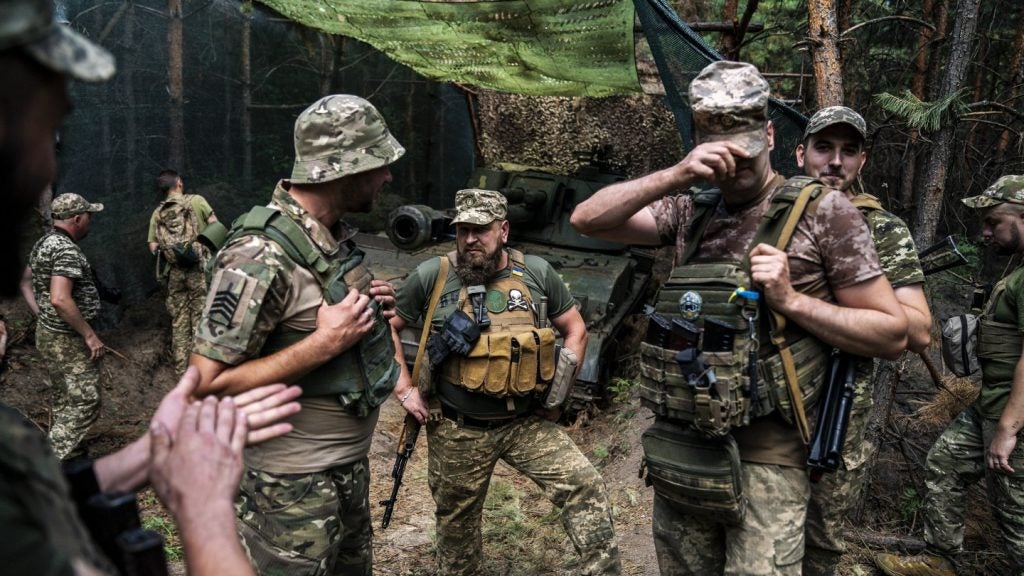
The phrase ‘Storm Shadow’ – the British designation for cruise missiles manufactured by MBDA – is trending on the social media platform X, formerly known as Twitter, this morning.
In the backdrop to Russia’s unlawful invasion of Ukraine since February last year, reports claim that the Ukrainian Armed Forces fired ten air-launched Storm Shadow/SCALP cruise missiles on the naval shipyard in Sevastopol, Crimea early this morning – in Russian-occupied territory that serves as a critical port for sustaining Russia’s Black Sea fleet.
Delivering a statement to the UK House of Commons on 11 May 2023, the former British Defence Secretary Ben Wallace confirmed the UK had supplied an undisclosed number of Storm Shadow missiles to Ukraine, in what marks the first provision of such an air-launched capability to Kyiv.
The Storm Shadow/SCALP is a long-range, air-launched, stand-off attack missile offered by pan-European defence supplier MBDA, primarily for the UK and French armed forces.
The missile is intended to strike high-valued stationary assets such as airbases, radar installations, communications hubs and port facilities. The Storm Shadow can engage the targets precisely in any weather conditions during day and night. The long range and low attitude combined with subsonic speed make the Storm Shadow a stealthy missile.
How well do you really know your competitors?
Access the most comprehensive Company Profiles on the market, powered by GlobalData. Save hours of research. Gain competitive edge.

Thank you!
Your download email will arrive shortly
Not ready to buy yet? Download a free sample
We are confident about the unique quality of our Company Profiles. However, we want you to make the most beneficial decision for your business, so we offer a free sample that you can download by submitting the below form
By GlobalDataAccording to the Russian Ministry of Defence, Ukrainian forces “fired ten cruise missiles at the ship repair plant… in Sevastopol and three uncrewed boats at a detatchment of Black Sea Fleet ships on a sea crossing.”
The Ministry claimed its “Air defence systems shot down seven cruise missiles,” and added that “the patrol ship Vasily Bykov destroyed all the unmanned boats. Two ships under repair were damaged by the enemy cruise missiles.”
In a post on the social media platform Telegram, the Commander of the Ukrainian Air Force Mykola Oleshchuk warned that there would be more to come, after congratulating the Air Force for its “excellent combat work.”
Russia’s Defence minister Sergei Shoigu anticipated the use of the missiles in an address earlier in June.
According to the state-owned Russian news outlet Tass, “[Shoigu] stressed that the use of these weapons outside of the special military operation zone would trigger immediate strikes by Russia on decision-making centres in Ukraine and would imply the full-fledged involvement of the US and UK in the conflict.”
Since this announcement, the US had provided Ukraine its 46th tranche of military equipment to Ukraine on 6 September, which included 120mm depleted uranium tank ammunition for Ukraine’s contingent of Abrams tanks.
This announcement added a sense of escalation to the conflict as Russian Defence officials claimed the rounds would have severe health risks, to which a US Department of Defense spokesperson said, “there is no evidence that the depleted uranium rounds cause cancer.”
Reports claim that the two damaged Russian ships were the Ropucha-class landing ship Minsk and the Rostov-on-Don Project diesel submarine. If confirmed, this may prove to be a considerable blow to Russia’s Black Sea fleet as well as a challenge to the occupier’s once iron-clad grip on Crimea since 2014.
Our signals coverage is powered by GlobalData’s Disruptor data, which tracks all major deals, patents, company filings, hiring patterns and social media buzz across our sectors. These signals help us to uncover key innovation areas in the sector and the themes that drive them. They tell us about the topics on the minds of business leaders and investors, and indicate where leading companies are focusing their investment, deal-making and R&D efforts.






